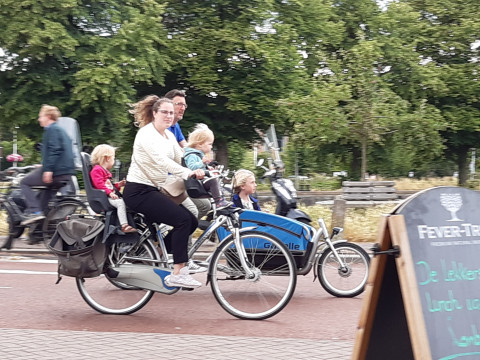
Lessons from Planning the Cycling City summer school in the Netherlands
By Patrick Morgan, CAN Project Manager
This month I attended Planning the Cycling City summer school in Amsterdam, Utrecht and Rotterdam. Lucky me. Along with 30 students from 20 countries, we examined cycling through social sciences lenses. We applied lessons from planning, economics, modelling, history, marketing, epistemology, and anthropology. We rode 10,000 km over the three weeks.
What did I learn?
Dutch city streets are quiet places. You can hear people chat.
The Dutch never had a grand plan. High levels of cycling in the Netherlands are the result of many factors: heritage advocates, housing activists, road safety campaigns, an oil crisis, lack of a domestic car industry, density, need to preserve productive land, historic settlement patterns, and cultural norms. .
Improving cycling is not just a technical problem. It's an adaptive, human and cultural problem. We run into trouble when we treat it as a technical problem only.
Dutch children are happy.
New Zealand is behind the Netherlands, but we are ahead of Australia, UK, Thailand, Brazil, Mexico and many other countries.
Our task here remains the same: build public support for investing in streets that are safe and attractive for people of all ages and abilities. Make a compelling case for cycling, using both evidence and by telling better stories.
Huge thanks to all the people who supported me, especially to Hon Tracey Martin for approving Lotteries funding, the NZ Embassy of the Kingdom of the Netherlands, Claire Pascoe, and the tremendous volunteers at CAN.
